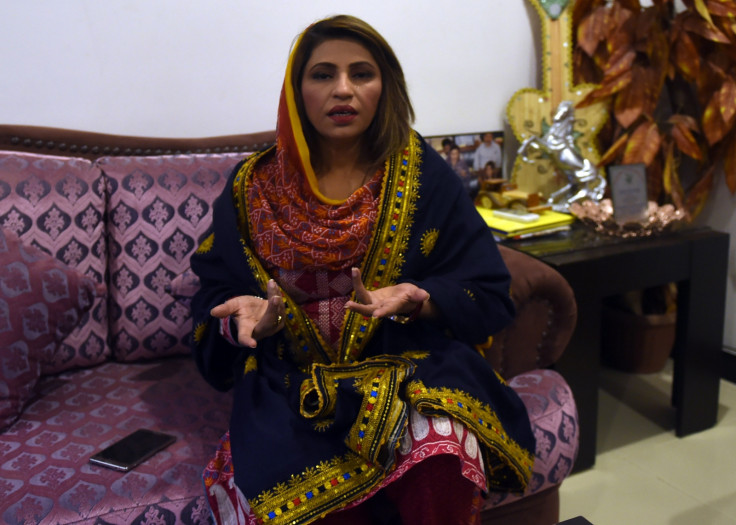Pakistani MP threatens to set herself on fire over male colleague who harassed her
The lawmaker wanted to highlight failure in tackling sexual harassment of women in the workplace.

A Pakistani lawmaker resorted to drastic measures to prove a point about sexual harassment of women in the country.
Nusrat Sahar Abbasi, an MP in Sindh province for the Pakistan Muslim League party, was furious when provincial minister Imdad Pitafi made lewd remarks at her in the midst of a heated debate in the assembly on 20 January, and the deputy speaker of the assembly, also a woman, refused to take action.
A day later, Abbasi gave a news conference holding a small bottle of gasoline and threatened to self-immolate if action wasn't taken within two days.
"Everyone witnessed how I was harassed in Sindh Assembly," she said, as reported on Pakistani website The News. "If Imdad Pitafi is not forced to resign or fired in two days, I will burn myself in front of Sindh Assembly," she said.
Pitafi caved in and asked for forgiveness on Monday (23 January), draping a traditional shawl over Abbasi's head in a traditional gesture of apology. "I accept his apology for the sake of the shawl. It is a tradition in Sindh that when a shawl is used as a sign of forgiveness, then the other person accepts it," she said.
However, she demanded assurance from Pidafi's party leader, Pakistan Peoples Party chairman Bilawal Bhutto Zardari, who is the son of Pakistan's first female prime minister Benazir Bhutto, that this kind of episodes would not happen again. "I am also a woman like your mother Benazir Bhutto," she said. "I have been insulted and my family has been insulted. Bilawal Bhutto should guarantee that an incident like this should not be repeated in the future".
Bhutto's eldest daughter Bakhtawar Bhutto Zardari tweeted her support for Abbasi on 21 January, saying the behavious was unacceptable and "totally against the ethos of our party that has been led by the strongest of women".
Yes must apologise absolutely unacceptable behaviour & totally against ethos of our party that has been led by the strongest of women #PPP https://t.co/3BZAlvC4c6
— Bakhtawar B-Zardari (@BakhtawarBZ) January 21, 2017
Speaking to AFP on 24 January, Abbasi said her intention was not just to fight for herself, but to highlight the plight of sexual harassment at work and question the implementation of laws meant to address the issue. "Their implementation is still a dream," Abbasi said, adding "Even us, the parliamentarians are not safe from gender biases and harassment."
Pakistan ranked second-last for the second year in a row in the annual World Economic Forum's global gender gap ranking. The country ranked just above war-torn Yemen among 144 countries.
So-called honour killings and acid attacks remain commonplace in the country, despite the relatively high participation of women in politics compared to other countries in the region (19.7% of parliamentarians are women compared to India's 12.2%). Lack of proper enforcement of laws aimed to protect women is seen as a major obstacle to improving gender equality in the deeply conservative country.
© Copyright IBTimes 2024. All rights reserved.






